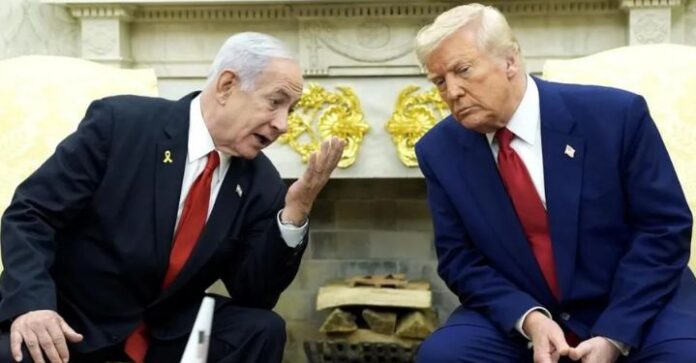On June 13, 2025, Israel launched a significant military operation, “Rising Lion,” targeting Iran’s nuclear facilities and military leadership. This preemptive strike, executed without prior consultation with U.S. President Donald Trump, marks a pivotal moment in Middle Eastern geopolitics and underscores Israel’s commitment to its national security interests, even at the expense of its alliance with the United States.
The Operation
The Israeli Defense Forces (IDF) conducted a series of airstrikes on key Iranian sites, including the Natanz nuclear enrichment facility and missile infrastructure. High-profile casualties reported by Iranian state media include Islamic Revolutionary Guard Corps (IRGC) Chief Commander Hossein Salami and nuclear scientists Fereydoun Abbasi-Davani and Mohammad Mehdi Tehranchi. The operation also involved covert sabotage missions by Mossad targeting Iran’s missile capabilities.
Israeli Prime Minister Benjamin Netanyahu justified the strikes as a necessary measure to prevent Iran from acquiring nuclear weapons, emphasizing that Israel would not wait until the threat became imminent. This stance echoes the “Begin Doctrine,” which asserts Israel’s right to act preemptively against existential threats.
Trump’s Response
Despite being informed of the operation beforehand, President Trump expressed his disapproval, urging Israel to pursue diplomatic avenues instead. However, Netanyahu proceeded with the strike, stating that Israel would make decisions based on its national interests, irrespective of U.S. preferences.
The Trump administration distanced itself from the operation, with officials emphasizing that the U.S. was not involved and would focus on protecting American personnel in the region. This divergence highlights the complexities of the U.S.-Israel relationship and the challenges of aligning foreign policies between the two nations.
Regional and Global Reactions
The international community has expressed concern over the escalation. Countries like Japan, Saudi Arabia, the UK, and Australia have called for restraint and dialogue to prevent further conflict. Iran has vowed retaliation, and the situation remains volatile, with potential implications for global security and energy markets.
Operation Rising Lion: Netanyahu’s Defiance of Trump’s Diplomacy
The launch of “Rising Lion” signifies a bold assertion of Israeli autonomy in its defense policy. Netanyahu’s decision to act without U.S. approval reflects a broader trend of nations prioritizing their strategic interests over traditional alliances.
This move also challenges the Trump administration’s “America First” doctrine, which seeks to minimize U.S. involvement in foreign conflicts. The Israeli operation complicates Trump’s foreign policy agenda and may strain relations with other allies who value multilateral diplomacy.
Implications for U.S. Foreign Policy
The Israeli strike underscores the limitations of U.S. influence over its allies and the complexities of maintaining global leadership. While the U.S. has significant leverage, especially in the Middle East, its ability to dictate actions to sovereign nations is not absolute.
The situation also raises questions about the effectiveness of the Trump administration’s approach to international relations. The lack of coordination with Israel may prompt a reevaluation of U.S. strategies in the region and its role in global diplomacy.
Conclusion
Israel’s “Rising Lion” operation marks a significant shift in Middle Eastern dynamics, illustrating the nation’s willingness to act independently to secure its interests. The response from the Trump administration and the international community will shape the future of U.S.-Israel relations and the broader geopolitical landscape. As the situation develops, the world watches closely to see how this bold move will influence global peace and security.

